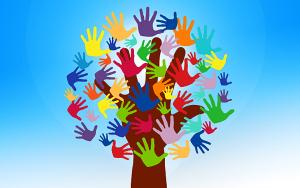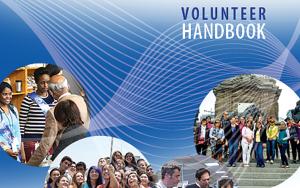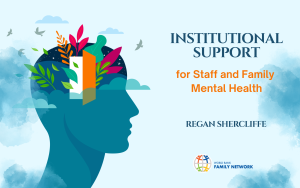Domestic Abuse Tips - “Upscale Marriages”
Domestic Abuse happens in marriages at all levels of society and abuse is a problem even in relatively privileged communities like ours. Indeed, this view, and how it ensures that domestic abuse among the more affluent remains unacknowledged and underreported, is the central theme of a book Not to People Like Us—Hidden Abuse in Upscale Marriages, by Susan Weitzman.
Her observations, as a psychologist treating upscale victims, the well-educated, well-heeled patients with domestic abuse issues, establish that higher social standing can further entrap the victim in the abuse situation, rather than serving as a resource for self-help. Below is a brief summary of those areas where Dr. Weitzman’s research results diverge from the main body of domestic abuse literature.
Piercing the Veil of Silence
Statistics showing that domestic abuse rates decline with increasing income and education derive from police reports, and women seeking refuge in shelters. However, upscale victims seldom involve these agencies, for several reasons. Generally, those of higher socioeconomic status are reluctant to involve the authorities in “personal matters”. A deep desire to hide the abuse stems from shame, embarrassment, and an isolating conviction that the upscale victim is the only one in her social milieu to be suffering so. Being achievers, upscale victims are accustomed to success, feeling they should be able to resolve problems themselves. They blame themselves when things are not as they should be.
Statistics showing that domestic abuse rates decline with increasing income and education derive from police reports, and women seeking refuge in shelters. However, upscale victims seldom involve these agencies, for several reasons. Generally, those of higher socioeconomic status are reluctant to involve the authorities in “personal matters”. A deep desire to hide the abuse stems from shame, embarrassment, and an isolating conviction that the upscale victim is the only one in her social milieu to be suffering so. Being achievers, upscale victims are accustomed to success, feeling they should be able to resolve problems themselves. They blame themselves when things are not as they should be.
In some societies e.g. certain parts of Africa spousal abuse is accepted as a norm. Additional strong inducements to keep silent are protection of family and professional reputations, and the belief (reinforced by experience) that they will not be believed.
Since neither abuser nor victim conform outwardly to society’s preconceived image of a batterer and his target, there are few opportunities for an upscale victim to confide her domestic abuse problem. There is a marked tendency among professionals such as lawyers and even psychologists, not to enquire whether domestic abuse is relevant to the problem that it is the reason for the consultation, assuming that it cannot be a factor. However, in some states Emergency Room personnel are required by law to ask if the visit is a result of having been hurt by an intimate partner. They assume that if abuse is involved, the client will volunteer that information.
In cases where upscale victims do contact police and services dedicated to abused women such as shelters, they are often not accorded the same attention as women of lower socioeconomic status, since their circumstances seldom appear as desperate or urgent. There is little sympathy, and some resentment, of victims with obvious, abundant financial resources. Moreover, in upscale abuse cases that come to court, the abuser tends to be treated leniently due to his standing in the community. As the author expresses it, the upscale victims are “re-victimized by the neglect, ignorance and skepticism they encounter”.
Most upscale victims have not previously encountered domestic abuse, and do not recognize it as such when it emerges in their relationship. They typically live in spacious homes, so that the abuse is not likely to be detected by neighbors.
In general, there is a lack of external validation of the upscale victim’s experience of abuse, from her family, friends and surroundings. She thus assumes blame for having provoked abusive incidents, and “tries harder” to anticipate her abuser’s conflicting signals in order to avert punishing episodes. She fails, and her self-esteem erodes further. In all this, she does not think of herself as a victim of domestic abuse for all the above reasons. Dr. Weitzman has proposed the term “upscale violence” to name, and thereby legitimize, the experiences of such upscale victims.
Upscale Victims, Abusers
Dr. Weitzman asserts that “learned helplessness” (if you can’t change the situation, you stop trying), an attribute ascribed to abused women, is not characteristic of upscale victims, who actively take decisions about involvement in the abusive relationship, and use coping strategies to follow through. These decisions range from ignoring the disquieting first warning signs, to keeping silent about the abuse, to ultimate decisions about whether to leave or remain under altered terms. A final choice to leave is often preceded by a period of “silent strategizing” during which the upscale victim aims for certain personal goals for herself or the children, before taking the last step. This does not happen before the upscale victim recognizes that she is battered and puts a label to it. This commonly happens “through the eyes and ears of others”. The victim needs to “tell her story” i.e. construct the history of her abuse as a coherent narrative for the first time, and obtain external validation of her experience from others.
Dr. Weitzman asserts that “learned helplessness” (if you can’t change the situation, you stop trying), an attribute ascribed to abused women, is not characteristic of upscale victims, who actively take decisions about involvement in the abusive relationship, and use coping strategies to follow through. These decisions range from ignoring the disquieting first warning signs, to keeping silent about the abuse, to ultimate decisions about whether to leave or remain under altered terms. A final choice to leave is often preceded by a period of “silent strategizing” during which the upscale victim aims for certain personal goals for herself or the children, before taking the last step. This does not happen before the upscale victim recognizes that she is battered and puts a label to it. This commonly happens “through the eyes and ears of others”. The victim needs to “tell her story” i.e. construct the history of her abuse as a coherent narrative for the first time, and obtain external validation of her experience from others.
There were common features in the way in which upscale victims first became close to their abusers. Many met at a time of psychological vulnerability for the women. They had highly romanticized “Cinderella” views of marriage, idealizing the men. Their own considerable achievements did not prevent the women from perceiving a power imbalance, and they considered their social or financial status enhanced by the new relationship, or were otherwise in awe of their charming suitors. Early warning signs were ignored.
The well-known “honeymoon periods” of intense abuser remorse and courtship immediately following abusive episodes in the “cycle of violence” are absent in upscale relationships, though periods of calm in between incidents may awaken false hopes that things will improve.
The absence of the honeymoon phase is attributed to the Narcissistic Personality Disorder that Dr. Weitzman believes characterizes the upscale batterer. People who suffer from this disorder “have no conception of others as individuals with needs or wishes of their own.” Relevant traits are a sense of self-importance, a need for excessive admiration, a feeling of being “above the law” a lack of empathy and a strong sense of entitlement. The abuser is convinced that his actions are justified (the victim did not meet his needs); he need not apologize. Where those with Narcissistic Personality Disorder do empathize, they use their insight to wound their victim more deeply.
Why do they stay?
In upscale marriages, abuse is primarily of an emotional nature and includes neglect, controlling behavior (often around financial issues), public humiliation, threats, constantly changing moods and demands, and excessive selfishness. This is as damaging as physical violence, and likewise escalates over time.
In upscale marriages, abuse is primarily of an emotional nature and includes neglect, controlling behavior (often around financial issues), public humiliation, threats, constantly changing moods and demands, and excessive selfishness. This is as damaging as physical violence, and likewise escalates over time.
One of the most powerful reasons for remaining in the marriage, at all costs, is the conviction that the children will be best served by the lifestyle that the couple affords together. The demoralized upscale victim, despite her own professional and personal accomplishments, assumes that she and her children will lose everything, not least her comfortable and enviable “wifestyle” if their family life is not preserved. She believes her abuser’s dire predictions of penury or deprivation of parental rights should she leave, believing that he has the influence and access to legal resources to make good his threats. Indeed, abuse frequently continues in the form of draining, frivolous lawsuits brought by the abuser.
Although many upscale victims feared that ending the abusive marriage would result in drastic changes to their socioeconomic status, Dr. Weitzman’s data indicate that most upscale victims continue to enjoy a very comfortable lifestyle and professional fulfillment, but in an atmosphere of relief and freedom from fear, after liberating themselves from their abusive situations.
The book has checklists useful for identifying whether you are abused, the traits of abusive males, early warning signs of abuse, behaviors and resources.
The book has checklists useful for identifying whether you are abused, the traits of abusive males, early warning signs of abuse, behaviors and resources.
“Not to People Like Us” Hidden Abuse in Upscale Marriages S. Weitzman, Ph.D., Basic Books (2000), 289 pages. Copies of the book and an audiotape of Dr. Weitzman’s interview on the Diane Rehm show are available from the WBVS office. See also Dr. Weitzman’s website, www.nottopeoplelikeus.com.






